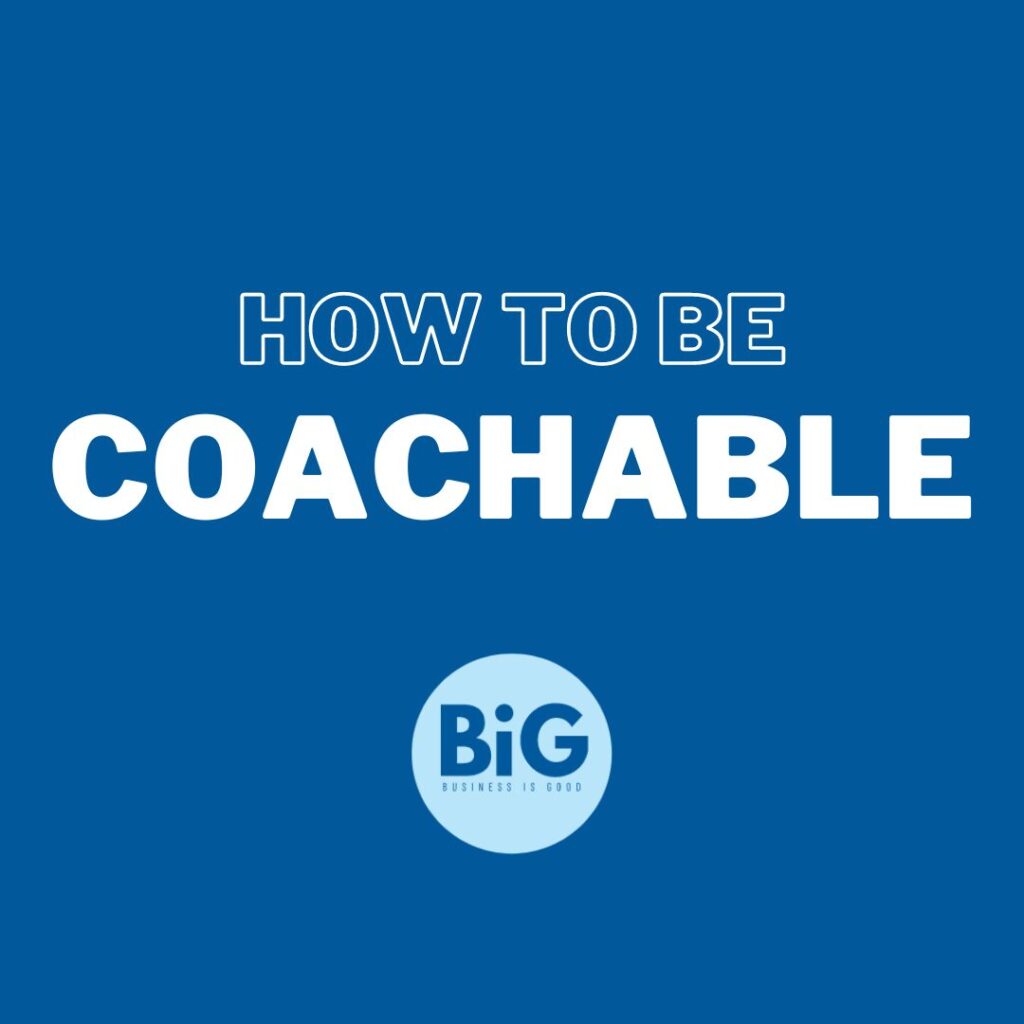I get a tremendous ROI on business coaching and mentorship, because I’ve developed the skill of being coachable.
You’ve heard this, right? “When the student is ready, the teacher will appear?” Well, my experience with mentors has taught me how to get ready–and that means I get a lot more from my coaches than most do. I call that being “coachable”.
Here’s what I’ve learned about being coachable over the last 15 years of mentorship:
- Be skeptical before you sign up, not after.
I’m very skeptical of business coaches. And that’s a good thing–but if you’re skeptical after signing up, you’ll get no value from their coaching.
Being skeptical before you invest will save you money. Being skeptical after you invest will cost you money.
Filter hard – but go all-in on those who make it through your filter.
(I have a few filters, but here’s the most important one: are they open about their failures? If I can’t find any mention of their mistakes, then I know they’re not being completely honest, and I can’t trust their advice or reported outcomes.) - Block time to do the work in advance.
There’s no sense hiring someone to read their book to you. Real mentorship (and coaching) requires action.
Block windows in your day to act on what you’re learning (or to make the changes your mentor has advised you to make, or work the P&L to measure the effect…whatever.)
You need two windows every day: FOCUS, to think; and SHIP, to execute.
I like to block an hour after each call with my mentors to do the work, or to fully absorb it (that’s #3). If we’ve booked an hour call, and we use that whole hour, I still have another hour to execute right away while it’s fresh. And usually, I end the call as soon as I have one clear directive–whether that happens at the 60-minute mark or the 12-minute mark. I don’t make much small talk with my business mentor. - Teach what you’ve learned to someone else.
This is the best way to retain and understand new knowledge for most people.
When you teach something, you get to learn it twice. Even better, you’re forced to summarize the lesson, making it clearer. You internalize the lesson because you put it into your own context. And you just remember it better because you’ve heard it twice.
This is a lesson I learned in college, and it’s why I started my first blog (DontBuyAds.com) about business–because I couldn’t afford to miss a single thing I was being taught. - Adopt the new system verbatim first. Test it. THEN tweak it if you want to, and test it again.
If a mentor or coach makes it through your filters, and you sign up, then you owe it to yourself to execute their playbook.
Every little tweak or change you make will dilute the effect of their mentorship.
This is really why we do 1:1 mentorship at Two-Brain: every day, I have conversations with gym owners who have read my books or heard my podcast and said, “Oh yeah, we kinda do what you said, but altered it a bit for our business…it’s just not making a difference.” That’s because the details matter a lot. A 1:1 mentor will hold you to the details. “Sorta doing it” is the same as not doing it. Don’t try to outsmart the person you’re paying for advice. - Know when to say “when”. I touched on this in #2, but when you have one clear action to take, end the call with your mentor, leave the webinar, or even go back to your hotel room and DO it.
You’re not paying for the mentor’s time…you’re paying for speed. Every minute you spend making small talk or just filling your appointment time is a minute you’re not really taking action.
Usually, your mentor is too polite to end the call and say “get to work”. More mentors should. But it’s really on us–the clients–to say, “That’s enough for now, let me do this and send it to you in an hour.”
Your ROI on mentorship is larger than almost any other investment. By improving the owner, you improve the business–and all future businesses in which the owner is involved. But the degree of return on that investment is really up to us, the clients. Great clients magnify the effect of their mentor exponentially.


